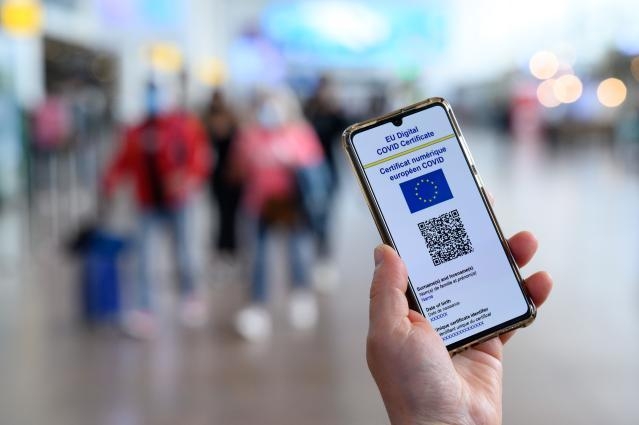The European Commission is proposing to extend the EU Digital Covid Certificate by a year, until 30 June 2023, it said on Thursday.
The Commission said Covid-19 continued to be prevalent in Europe and at this stage it was not possible to determine the impact of a possible increase in infections in the second half of 2022 or of the emergence of new variants.
Extending the Regulation will ensure that travellers can continue using their EU Digital COVID Certificate when travelling in the EU where Member States maintain certain public health measures, it said.
In addition to the extension of the EU Digital COVID Certificate Regulation until June 2023, the Commission also proposes some limited amendments:
- To include high-quality laboratory-based antigen tests among the types of tests for which a test certificate can be issued. This aims to widen the scope of the types of diagnostic tests at a time where Covid-19 tests are in high demand.
- To ensure that vaccination certificates contain the correct overall number of doses administered in any Member Stateand not just in the Member State issuing the certificate. This is to address practical concerns raised by citizens about certificates indicating an incorrect number of doses when they receive vaccine doses in different Member States.
- To provide that certificates may be issued to persons participating in clinical trials for vaccines against COVID-19.The EU Digital Covid Certificate issued to trial participants may then be accepted by other Member States. This measure aims to encourage the continued development and study of vaccines against COVID-19.
The domestic use of EU Digital COVID Certificates remains a matter for Member States to decide, the Commission said.
The EU legislation on the EU Digital Certificate neither prescribes nor prohibits the domestic use of EU Digital Certificate (such as for access to events or restaurants). At the same time, where a Member State establishes a system for domestic purposes, it should continue to ensure that the EU Digital Certificate is also fully accepted for those purposes. Beyond that, the Commission also encourages Member States to align their domestic validity periods with the validity period set at EU level for the purpose of travel.
To ensure that the extension is adopted in time before June 30, 2022, the current end date of the EU Digital Certificate Regulation, the Commission calls on the European Parliament and the Council to adopt the proposal swiftly.
Commissioner for Justice, Didier Reynders, said: “We cannot predict how the pandemic will evolve, but we can make sure that citizens continue to benefit from a certificate that works and is accepted wherever they go. Without this extension, we risk having many divergent national systems, and all the confusion and obstacles that this would cause. The EU Digital COVID Certificate has proven an effective tool to facilitate safe and free travel. While I am looking forward to the day when it is no longer needed, but in the meantime it will enable us to move around safely in Europe.”
Commissioner for Health and Food Safety, Stella Kyriakides, added: “The EU Digital COVID Certificate has facilitated safe free movement and travel in times of great uncertainty. Our citizens have embraced it and it has made their lives easier. This important tool has been key to manage the risks and support public health measures in place to protect citizens during the pandemic. Today we propose to update the possibilities to make use of the certificate for travel across the EU in order to provide certainty for our citizens, as long as the public health needs persist. We also propose to bring our certificate up to date with the latest scientific developments and epidemiological changes, the need to speed up booster campaigns and to support vital on-going clinical research, acknowledging citizens taking part in it.”







Click here to change your cookie preferences